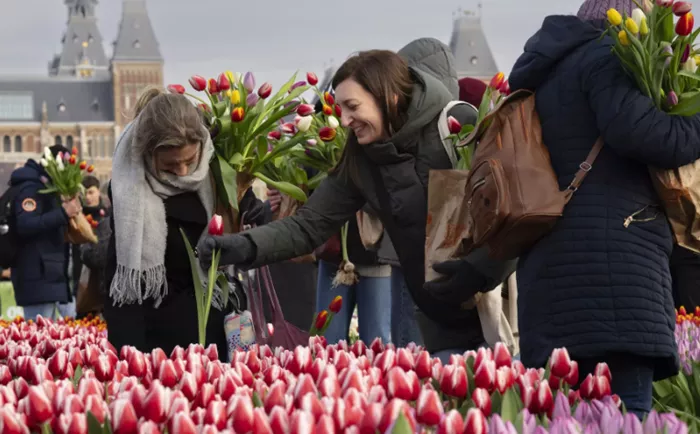Europe’s thriving plant sector is facing severe challenges due to UK post-Brexit border checks. These checks are causing significant delays and increased costs for exporters, leading some suppliers to abandon the UK market entirely.
The UK government introduced these inspections as part of new biosecurity measures. The horticultural industry in Europe has described these measures as “painful.” UK plant importers are deeply concerned about the impact these checks are having on the supply of plants, flowers, and other horticultural products. They have formally requested changes from the UK government.
In a letter to Sue Hayman, the UK Minister for Biosecurity and Plant Health, Fran Barnes, CEO of the Horticultural Trades Association (HTA), detailed the difficulties faced by EU exporters and UK importers. “The pressure on our industry is immense,” she stated. “Specialist transporters are now leaving the UK market, leaving us with fewer suppliers.”
Barnes emphasized the intense stress all parties involved in moving plants, trees, flowers, bulbs, and seeds between the EU and the UK are experiencing. They are facing soaring costs and complicated border processes with little information to guide them.
Strain on Long-Term Business Relationships
The HTA reports that long-standing business relationships between UK importers and EU exporters are under tremendous strain due to the strict border checks. UK ports lack the capacity to handle the extensive physical inspections needed to prevent pests and diseases from entering the country, disrupting the flow of goods.
Delays can last days or even weeks, placing a heavy financial burden on EU exporters, especially small and medium-sized businesses. These companies often struggle to pass on additional costs to customers because of existing contracts. Each inspection can cost between €500 and €1,000.
Dutch Exporters Hit Hardest
Dutch exporters have been especially affected by these delays. The UK is their second-largest market for flowers and plants, generating nearly €1 billion annually. Matthijs Mesken, Director of the Dutch Flower and Plant Exporters Association (VGB), painted a grim picture of the current situation.
“Up to 150 trucks carrying flowers and plants can arrive at UK ports daily, and each one must undergo inspection,” he explained. “One of our drivers waited for eight days in a lorry without clear information from border officials about the hold-up. It’s unacceptable for businesses to be kept in the dark.”
Although only 3% to 10% of flowers are checked, all plant shipments require inspection, leading to unpredictable delays. Trucks waiting without refrigeration can devastate delicate products like flowers. Mesken added, “Freight operators specializing in plant transport are withdrawing from the UK market, raising concerns about the potential loss of the UK as a key market for the EU’s horticultural sector.”
Communication Breakdown
The HTA blames the UK government for the disruptions. While they acknowledge the need for biosecurity measures, they criticize the poor communication and inconsistent application of the rules, which creates confusion at ports.
HTA CEO Fran Barnes stated, “All parties involved in transporting plants, trees, flowers, bulbs, and seeds between the EU and the UK are now under maximum stress, facing unmanageable price increases.”
An incident at the Sevington border control post in Kent earlier this year highlighted these issues. Trucks carrying plants from Italy were held for over a week. Vincenzo Marini, CEO of Marini Haulage, expressed his frustration: “One of our drivers had to wait eight days in a lorry with no clear information about the hold-up. I had to switch drivers just so the first one could go home after sleeping in the vehicle for days. It’s unacceptable for businesses to be left in the dark.”
The UK government maintains that these checks are crucial for protecting British plant health. They claim to be working on making operations smoother at ports. However, exporters argue that the current system is unsustainable. Many are calling for a review of the inspection processes or even a delay in implementing further phases of border controls.
Related topics:
- Two Essential Orchid Care Tasks to Keep Houseplant Flowers Blooming Longer and Thriving for Years
- Recovering Wetlands with the Right Plants is Great News for Our Planet
- The Impact of Plants’ Airborne Signals on Defense Tactics


